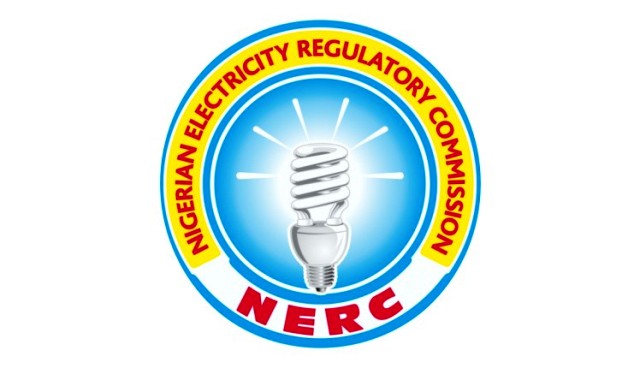Editorial
No To Power Tariff Hike

As operators of the power sector mount pressure on the electricity regulatory body to effect the scheduled increase in tariff, electricity consumers across the country have continued to voice out their objection, since news of the planned increase in electricity tariff by the Nigerian Electricity Regulatory Commission (NERC) slated to commence in April, this year broke.
Going by the new tariff approved by NERC, consumers will pay about N1.52 trillion more for power supplied to them this year, but several groups are of the view that this increment should not stand until there is considerable improvement in power supply.
Justifying the new electricity rates, NERC said it considered the actual changes in relevant macroeconomic variables and available generation capacity in approving the tariff, and that the review was to give the Electricity Distribution Companies (DISCOs) cost-efficient tariffs to operate with. It even stated that the review recognised the historical tariff deficits of the DISCOs which affected their bottom line, and developed a framework to manage future revenue shortfalls in the industry, including minimum market remittance requirement.
This will account for differences between cost reflective tariffs and allowed tariffs in the settlement of invoices issued by the Nigerian Bulk Electricity Trading Plc (NBET) and Market Operations (MO) department of the Transmission Company of Nigeria (TCN).
Although NERC seemed to have concluded that the tariff review has come to stay, consumers consider any increase in tariff now as unjust and counter-productive because they have, for too long remained victims of poor power supply and in some cases permanent darkness.
Suffice it to say that the myriads of challenges plaguing the nation’s power sector include epileptic power supply with very low voltage, outrageous (estimated) billings and supply of light at awkward times (10pm to 3am) when it is not of much use.
In some areas where the transformers have issues, consumers continue to remain in darkness until they contribute money to get them repaired or replaced. Owners of new houses are expected to buy poles by themselves to be connected to power line. So, why hike electricity tariff?
The Tide notes with displeasure that DISCOs in most parts of the country have failed to show capacity and ability to deliver efficient and stable power supply and so in no way better than the comatose defunct Power Holding Company of Nigeria (PHCN) which they replaced in 2015 during the privatisation of the power sector.
Also, despite the marching order by the Federal Government to DISCOs to meter customers, nothing concrete has been done in this regard. Instead, there are reports in some parts of the country that instead of hastening the issuance of meters to those who don’t have, those issued prepaid metres are ordered to return same. Therefore, to tolerate any increase in tariff with such inefficiency would be to reward poor performance.
Equally, we make bold to say that the woes of our electricity supply should be blamed on the Federal Government’s refusal to demonstrate the political will to step on big toes and sanitise the power sector by reviewing the privatisation exercise embarked upon by the previous administration.
Government should compel the DISCOs to install prepaid meters for consumers and ensure optimal and consistent supply before any tariff increase. So, solving the electricity problem in Nigeria has to be holistic, requiring all hands to be on deck – the generating companies, distributing companies, transmitting company, consumers, as well as NERC.
Because the vast majority of electricity consumers are yet to be metered and are charged based on estimated billing, we believe that any increase in tariff now cannot guarantee fairness and transparency on the side of the DISCOs but instead to further rip-off consumers due to wrong estimates.
It is gratifying that the House of Representatives Committee on Power in response to public outcry recently, ordered NERC to suspend any tariff increase for now.
For all these reasons, we insist that NERC should review the services rendered by DISCOs and revoke the licences of the incompetent ones. Also, we suggest, as a way forward, that the issue of electricity be removed from the exclusive legislative list so as to allow states to develop and own power projects.
We support gradual, reasonable, cost-reflective tariff commensurate with service rendered, as increase in tariff should not be a channel by which inefficiency in the system is transferred to the consumers. We say no to any increase in tariff. Nigerians cannot continue to reward DISCOs, unless the Federal Government wants to honour them for their inefficiencies. New tariffs can only be justified if services are improved.
Editorial
Beginning A New Dawn At RSNC

Editorial
Sustaining OBALGA’s Ban On Street Trading

Editorial
AFCON ’25: Bravo, Super Eagles, But…

-
Maritime2 days ago
Nigeria To Pilot Regional Fishing Vessels Register In Gulf Of Guinea —Oyetola
-
Maritime2 days ago
Customs Declares War Against Narcotics Baron At Idiroko Border
-

 Sports2 days ago
Sports2 days agoGombe-Gara Rejects Chelle $130,000 monthly salary
-
Maritime2 days ago
NIMASA,NAF Boost Unmanned Aerial Surveillance For Maritime Security
-

 Sports2 days ago
Sports2 days agoTEAM RIVERS SET TO WIN 4×400 ” MORROW” …Wins Triple jump Silver
-
Maritime2 days ago
NIWA Collaborates ICPC TO Strengthen Integrity, Revenue
-

 Sports2 days ago
Sports2 days agoNPFL Drops To 91st In Global League Rankings
-

 Sports2 days ago
Sports2 days agoNSC eyes international hosting rights

